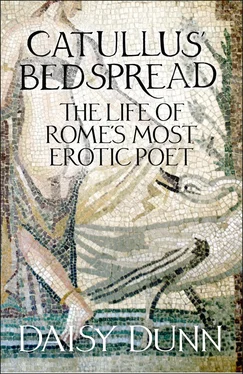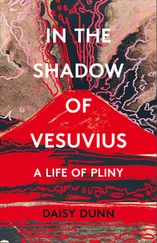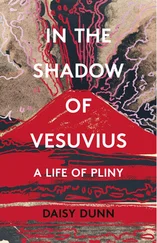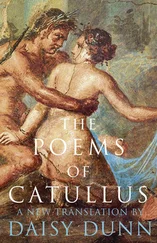The upheavals of the times contributed to the picture of decline that haunts a number of Catullus’ writings, particularly the Bedspread Poem. Matters in Rome had come to a head shortly before Catullus was born, when the optimates , politicians who championed the Senate’s authority, clashed with the populares , individuals who sought a more liberal, reforming approach to policy. Decades earlier, the Romans had established the province of Asia near Pontus, a Hellenised kingdom on the south coast of the Black Sea, in what is now Turkey. Not a little perturbed by the fact that the Romans had proceeded to fill the East with grasping tax-farmers, the king of Pontus, a Hellenised Iranian called Mithridates VI Eupator – who, like many ambitious men, liked to think that he was descended from Alexander the Great – embarked upon a land-grabbing mission.
Six years before Catullus’ birth, the Romans had begun to wage war against Mithridates. To head the campaign, the Senate elected an optimate , Lucius Cornelius Sulla, whose aristocratic roots, intense eyes, and complexion like a mulberry sprinkled with oatmeal marked him out as a man to be reckoned with. 7His appointment to so prestigious a role proved enough to incense one of the most prominent populares of the day, a plebeian and darling of Rome’s army, Gaius Marius. Though little shy of seventy years old, Marius tried to seize control of the commission himself, but then Sulla marched determinedly on Rome with his forces. He discharged Marius and his men from the city, and hurried off to his war.
Although Catullus makes no explicit mention of such disturbances, his poetry contains echoes of some of the political events which danced upon the periphery of his poetic consciousness. The wars against Mithridates in the East, and conflict between politicians such as Marius and Sulla, cast a terrible shadow over his life. The death toll in these wars was enormous. In seeking victory over Mithridates, the Romans approached the king of Bithynia, a land between Pontus and Asia where hyacinths bowed beneath the breeze. Although they persuaded the Bithynian king to attack Mithridates’ territory, they were in no way equipped for the scale of Mithridates’ retaliation. Over 80,000 Romans and Italians fell in the ensuing conflicts. Mithridates took hold of a string of cities along the Black Sea coast, and soon practically the whole sweep of Black Sea shoreline from Heracleia in the west to Georgia and Lesser Armenia in the east formed part of his sprawling kingdom. 8
Shortly before Catullus was born, Sulla returned to Italy. He had made some bold forays in the wars, even sacking Athens, whose people Mithridates had cunningly enticed to his side, but it would be more than twenty years before the struggle was formally concluded.
Back in Rome, a state of emergency was declared as Marius’ embittered forces prepared to make war on Sulla’s returning army. Sulla was declared dictator in the interest of ‘settling the state’, but his solution made Italy less settled than ever before. Catullus grew up in a world where the names of Sulla’s perceived enemies were added to miserable lists in the Forum, their property snatched, their rights destroyed, their lives, too often, cut short. Sulla doubled the number of senators from 300 to 600, and robbed the tribunes, the plebeian politicians at the bottom of the political ladder, of their function. 9The fallout was carried across Catullus’ native Gaul. Sulla gave up his dictatorship after two turbulent years, but then died, leaving Italy in despair and Rome’s business with Mithridates unfinished.
While Catullus was growing up, the three politicians who would come to be most prominent in Rome in his adult life, Julius Caesar, Pompey the Great, and Marcus Licinius Crassus, were steadily emerging out of this fraught scene. Crassus was one of Sulla’s former adherents. He came from a respectable family, but had lost several of his relatives and estates to Marius’ forces. He had everything to fight for, which might have explained why, when Catullus arrived in Rome, he found him desperate to become the richest man in all of Italy. He was charming, unscrupulous, incredibly well connected, and owed his name to his quelling of a slave revolt spearheaded by a gladiator named Spartacus. No sooner had the Senate appointed him to stem the sudden uprising than Crassus had crucified thousands of Spartacus’ men along the Appian Way – the now-blood-drenched road leading from Rome to Naples. Crassus proceeded thence to Rome’s top political office, the consulship, in 70 BC.
Elected alongside him that year was the son of a wealthy senator, a tough, rugged soldier; a man who thrived on ambition and conquest. His forehead was deeply furrowed and his face was fleshy, but his gaze was unmistakably determined. His name was Pompey, and thanks to his early successes in battle, he had earned the sobriquet ‘Magnus’ (‘the Great’). 10Crassus knew precisely who he was: Pompey, another of Sulla’s subordinates, had fought on his side in the civil wars against Marius, then put down the stragglers from Spartacus’ revolt.
Although Catullus wrote about Pompey in a couple of poems, he did not capture him from Crassus’ perspective. Crassus could not help but look askance at the man who had won plaudits that he could only dream of. The greatest accolade a Roman could win for victories overseas was a triumph, and Pompey had by now won two. For all his efforts in the slave revolt, Crassus received merely an ovation, the next best thing. Nevertheless, Catullus was looking on as the two men proceeded to their shared consulship, during which they reinstated the powers of the tribunes, which Sulla had so shamefully diminished.
Succeeding Sulla in the wars against Mithridates of Pontus was the splendidly named Lucius Licinius Lucullus, who scored a number of impressive victories, but was dismissed before he could bring the wars to an absolute conclusion. 11Enter Pompey, still high from his successes under Sulla and against Spartacus. He was singled out to succeed Lucullus in tackling the chief problems that plagued the world to Rome’s east. Mithridates was the obvious target, but to confront him, Pompey had first to rid the seas of pirates, who had already hindered Italy’s corn supply and kidnapped a number of her citizens, including Julius Caesar.
Caesar was a patrician from one of the older families. Unlike Pompey and Crassus, his seniors by six and fifteen years respectively, Caesar had found himself on the opposing end of Sulla’s regime. By marriage, he was the nephew of Gaius Marius, the popular politician against whom Sulla had engaged in civil war. Not only that, but he was married to the daughter of Marius’ colleague and successor, Cornelia. Wisely, given his patent allegiance, Caesar lay low during Sulla’s dictatorship, and completed part of his military service in Bithynia. He was then kidnapped by pirates, not far from Rhodes. When he was eventually released, he crucified his captors. 12
Having put the pirates to flight, Pompey skilfully led the Roman army in obliterating Mithridates’ forces. It was a difficult war and required great manpower, but Pompey saw the hostile king flee towards Colchis, a region that lay between the Black Sea and Caucasus mountains (in the territory of modern Georgia). Finally, in 63 BC, abandoned by his allies, usurped by his own son, Mithridates settled on suicide. 13
His kingdom, Pontus, fell to Rome. Catullus subsequently evoked it in his poetry. Pompey conquered a good number of Mithridates’ territories, and reduced his former ally, Armenia, to a state of dependency on Rome. Syria was among the places which slipped into Roman control. 14It happened that in the midst of the wars, the king of Bithynia, Nicomedes IV, had bequeathed by agreement his land to Rome, too. Pompey’s eyes sparkled at the possibilities. Intent now on lining the south coast of the Black Sea with Roman provinces, he decided to join Pontus and Bithynia together to form one enormous new province. 15
Читать дальше











